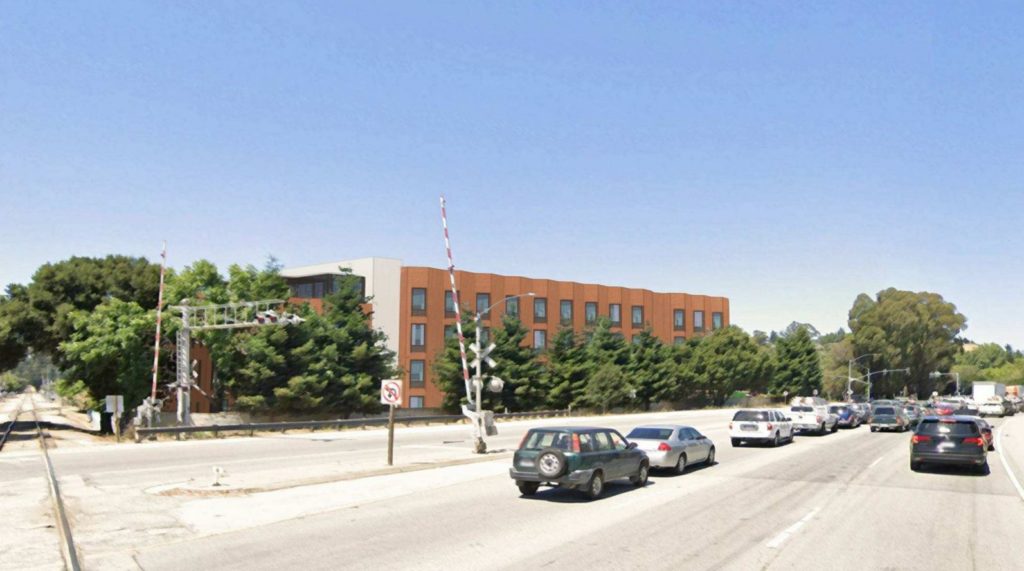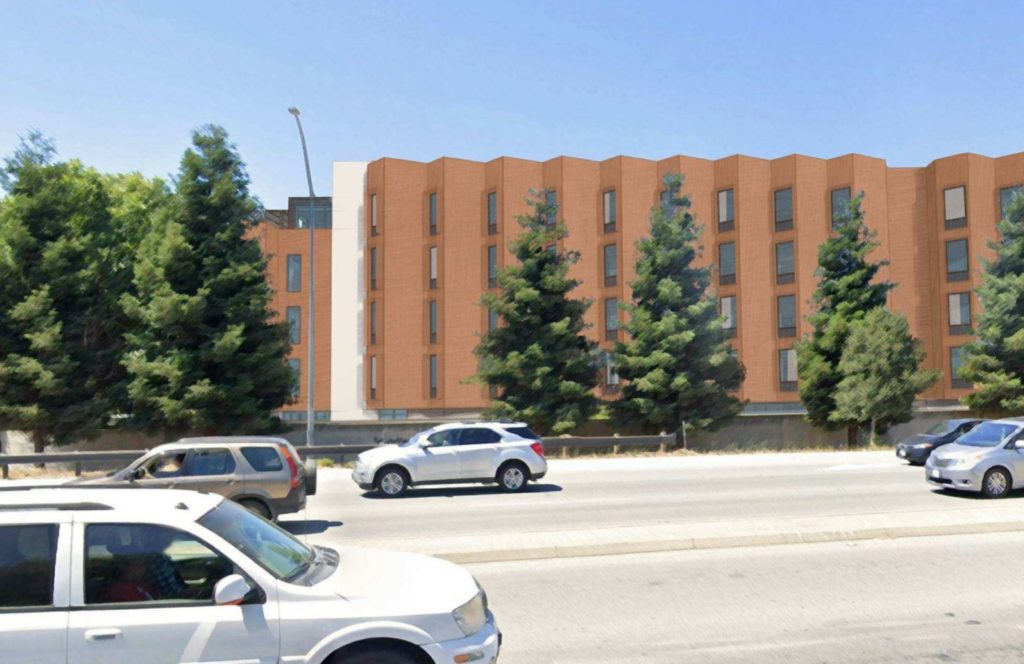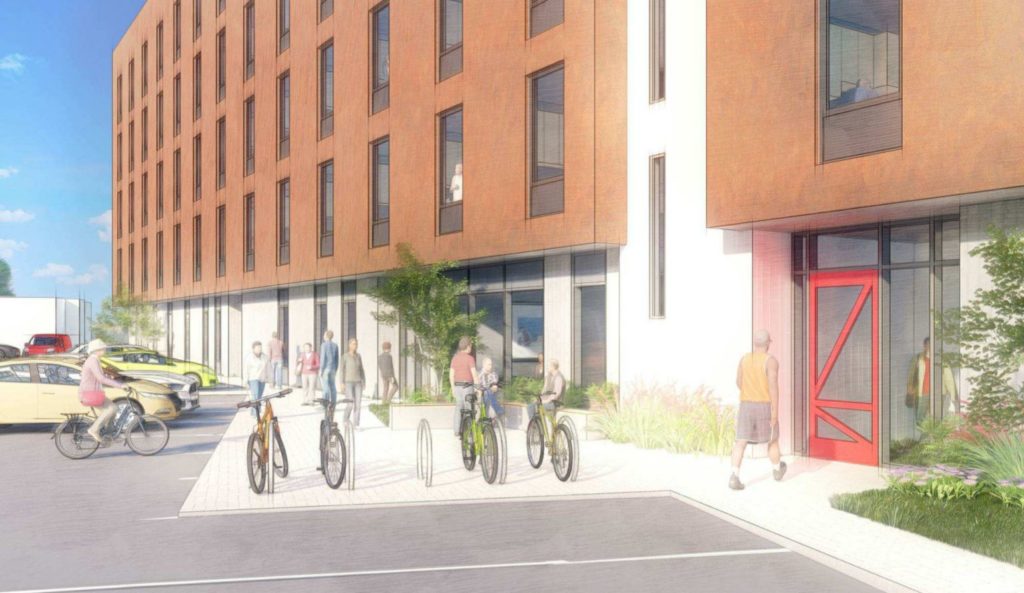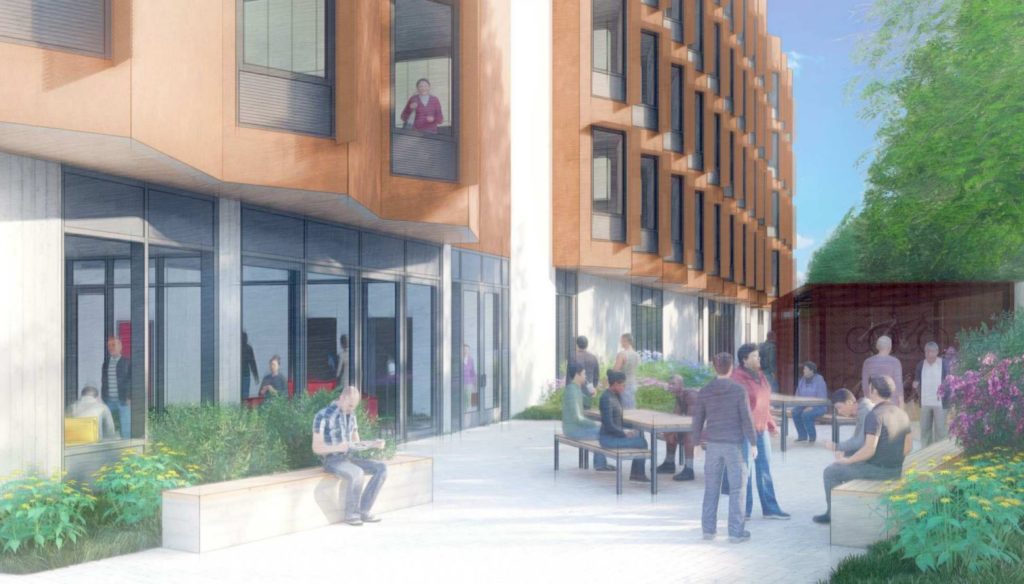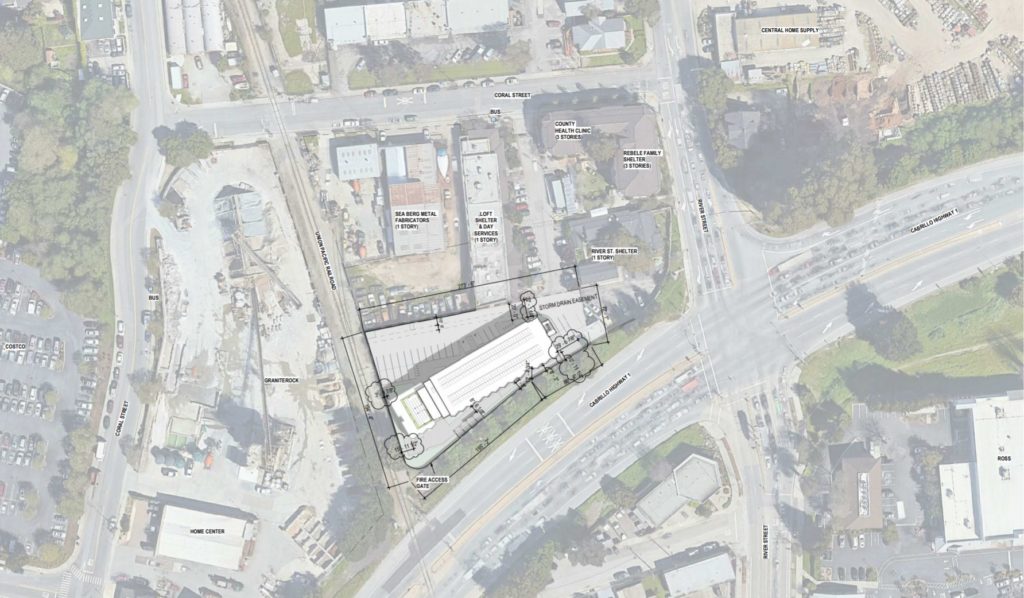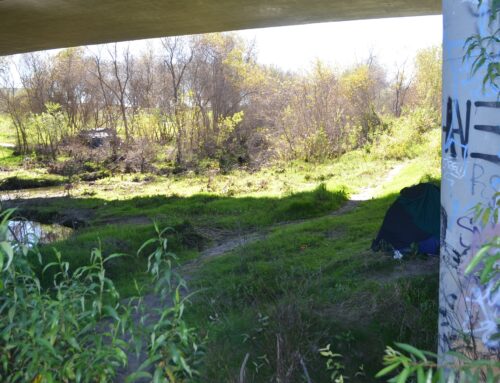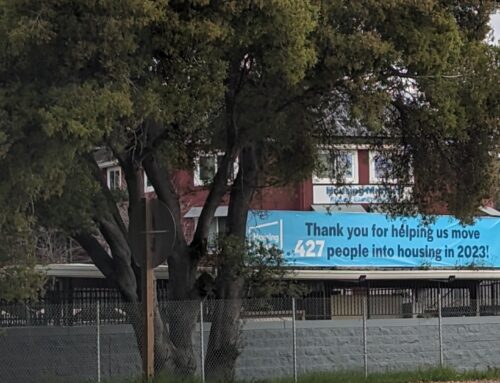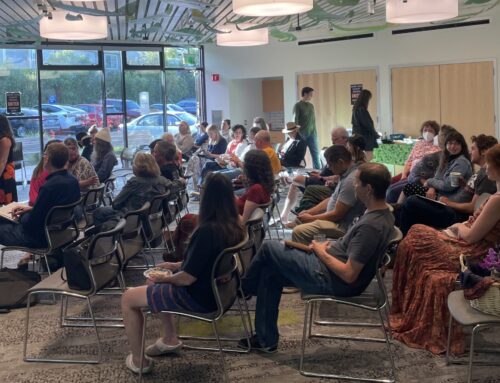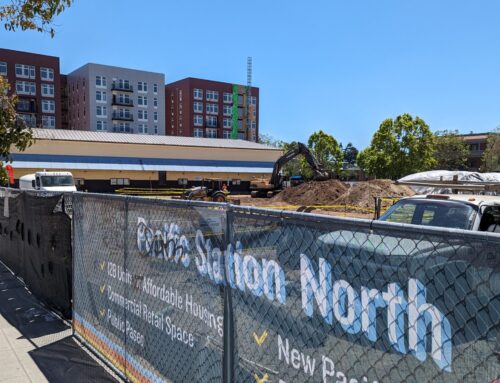Santa Cruz Local offers its Santa Cruz Planning Commission meeting recaps free as a public service. But our work costs money to produce.
Santa Cruz Local depends on memberships from people like you to make sure vital information can be available to all. Can we count on your help?
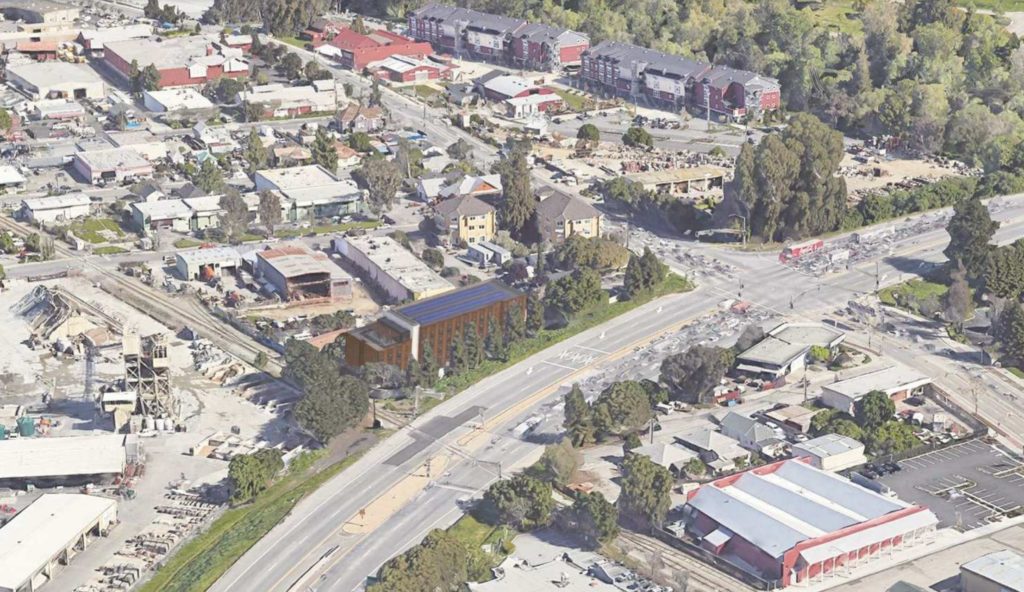
SANTA CRUZ >> Santa Cruz city planning commissioners on Thursday night approved a 120-apartment, five-story complex that will house and treat chronically homeless people with disabilities on the Housing Matters campus on Coral Street.
The building at 119 Coral St. would be near where the railroad tracks meet Highway 1 and will be separated from the highway by a soundwall. Housing Matters, a nonprofit that runs a temporary shelter on the campus, owns the land and will own the building in the expected $25 million project. The project is not expected to be publicly funded except for a potential ask of fee waivers from the Santa Cruz City Council in the coming months.
“These are the kind of projects our city needs,” said Planning Commissioner Peter Spellman, during Thursday night’s meeting. “I’m really excited about this project and it’s great to see it happening.”
Planning Commissioner Miriam Greenberg lauded the “housing-first approach” to homelessness and “innovative” financing model. New Way Homes, the developer, builds on land owned by nonprofit groups and uses crowdfunding and private donors to finance below-market-rate and permanent supportive housing such as the 119 Coral St. project. The building is also expected to be built offsite in modules in part to save costs.
“This is potentially a new moment for the city and for the region that we’re making this move,” Greenberg said.
After about 10 people called in to the meeting — including a Campbell planning commissioner and a San Francisco housing supporter — the commission voted 5-0 in favor of the project. Commissioners Sean Maxwell and Christian Nielsen were absent on vacation, Planning Commission Chairman Andy Schiffrin said. The commission approved permits for design, special use and residential demolition. It also approved a “density bonus” that essentially allows the plan to have more building height, less bike parking and less storage than city standards allow, in return for more affordable housing under state law.
The commission had a few recommendations.
- Because of the project’s nontraditional finance plan, Commissioner Julie Conway asked for a service operation plan and a property management plan that includes a parking plan. The plans would be needed if the developer ever seeks public money, Conway said.
- If the city council waives fees for the project, the commission asked that the units be deed restricted affordable based on area median income forever rather than for a number of years.
Developer Sibley Simon, president of New Way Homes and leader of the project, told commissioners that he could provide those plans.
The residents
The new building will house people who have been without permanent homes in Santa Cruz County for an average of eight years, Simon wrote in an email to Santa Cruz Local this week. Most of the people who will be eligible to live in the building are “Santa Cruz locals,” Simon wrote.
The expected renters there also have physical or mental disabilities, said Phil Kramer, executive director of Housing Matters. Because many of the people do not qualify to live at skilled nursing facilities, “They really fall through the cracks in our community,” Kramer said during the meeting. Similar permanent supportive care buildings and programs exist across the country.
The project’s 120 units exceed the 100-unit goal of permanent supportive housing in Santa Cruz County’s Three-Year Strategic Framework to Address Homelessness, Kramer added during the meeting.
“This is a proven solution to chronic homelessness,” Simon wrote this week. “We know it will make a significant difference to Santa Cruz.” He added, “Providing services within this residential building is far less expensive than the health care, law enforcement, and other resources serving this population now.”
The project
The site now has six single-story portable units that have temporarily housed about 40 people often discharged from a hospital. Recuperative care is provided on site. The people who now reside in the units live there temporarily and are not tenants, Simon said. They will not be displaced because when people leave in the coming months, new people won’t be allowed to enter. The portable units themselves are expected to be reused elsewhere, Simon said.
(Renderings by David Baker Architects, 180 Supportive Housing LLC)
If financing is completed in the coming months, the plan is to build a recuperative care center and a behavioral health clinic on the ground floor of the new building along with mail and laundry areas. Staff will be on duty 24 hours. Floors two to four will have studio apartments of about 250 square feet each. Floor five on top is expected to have more studios, a lounge and a west-facing, outdoor common area.
To save money on the project, the modular building design comes from a “nearly identical” but slightly larger building being constructed in San Francisco, Simon wrote in an email.
In the Santa Cruz project, soundproofing between apartments is also expected. Because of the sensitivities of the residents, the proximity to the highway and potential wildfire smoke like the city had this year, the building also is expected to have an extensive air-quality control system, Sibley said.
Triple-pane windows could be used to reduce traffic noise from Highway 1, passing trains and the Graniterock cement plant directly across the train tracks, the developers said.
Pat Mapelli, a Graniterock land use manager, said during Thursday’s meeting that Graniterock supported the project. However, he said he’d seen similar housing projects near other Graniterock industrial sites in the region and he didn’t want to get “pressure” against industrial use. “We’re positioned where we are strategically, because the city wanted us there,” Mapelli said. “And we want to be there.”
When a city staff member told Planning Commission Chairman Andy Schiffrin that the commission’s approval did not require city council approval, Schiffrin responded, “Great, that expedites things.”
More information about the project is on the City of Santa Cruz Planning Department page.
Stephen Baxter is a co-founder and editor of Santa Cruz Local. He covers Santa Cruz County government.

